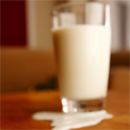 Drink lots of milk because it is good for your bones. This is something many of us have heard from our mothers and fathers for years. Even dieticians and doctors have talked about diary to promote good health and ward off problems like osteoporosis; however, this age old advice is now facing some scrutiny.
Drink lots of milk because it is good for your bones. This is something many of us have heard from our mothers and fathers for years. Even dieticians and doctors have talked about diary to promote good health and ward off problems like osteoporosis; however, this age old advice is now facing some scrutiny.
The highest consumption of calcium is in Canada and the United States, and the highest rate of osteoporosis is also in these countries. This spurned scientists and doctors to further question calcium’s impact on the human body.
Calcium acts alone?
New research suggests that while calcium plays a role in bone health, it can’t make our bones strong all on its own. Scientists have discovered that several other vitamins have to work in concert with calcium to give our bones strength. The intake of milk and other dairy products is important, but so are magnesium, vitamin K, and vitamin D. Without these, the structure of bones breaks down like a brick wall that is crumbling.
Another issue to consider; when it comes to calcium people automatically think of a glass of milk or a piece of cheese but they can be high in fat so here are some dairy free sources of calcium:
• Whole wheat products
• Broccoli, kale, cabbage
• Nuts and seeds
• Mineral water
• Dark, leafy greens
• Beans/legumes
Milk is still an important component for good health. It is good for our nerves and muscles. The Harvard School of Public Health recommends 2 servings of milk a day.
Calcium and good health have always been associated, but there is more information that may come as a big surprise to those who have been pushing milk and diary for decades.
The British Medical Journal published a review of calcium and heart attack studies that suggested an increased risk of heart attack among people who took calcium supplements without consuming vitamin D as well. Just over 6-thousand participants were involved in the studies. There was a 30 per cent increase in risk of heart attack.
Osteoporosis experts in Australia are scoffing at the report. They say long-term studies show that calcium is actually good for your heart.
The role of protein
Another long-standing belief is that a high protein diet can cause bone loss. The theory is that a lot of protein creates an acidic reaction in the body, which leads to calcium loss. Recent research; including a study at the University of Manitoba, has proved otherwise. Following long-term consumption of a high protein diet among rats, researchers at the university measured bone mass in the rats and concluded there was no negative influence. The high protein diet continues to be the source of studies around the world, including research that focuses on calcium.
Exercise
To maintain good health a lot of young people; particularly teens, are told to get their fair share of calcium. Often times that calcium intake is in the form of milk or other dairy products. A report in the American Academy of Pediatrics is one of several papers that have challenged the notion that good health, and specifically strong bone development requires a lot of calcium. The report states that exercise; not calcium intake, was related to bone mineral gain in teens who were involved in a health study at Penn State. The study looked at the hip bone development of active girls 12 to 18 years old and compared them to sedentary individuals. It turns out that regular exercise made a huge difference in bone mass development.
Bottom Line
If good health is the goal, you have to look beyond the dairy aisle. Add other sources of calcium to your diet, don’t forget vitamin K and D, and of course get regular exercise. Milk and other diary products should still be consumed, but they are only part of the equation when it comes to keeping your bones strong.
Related Reading: The Side Effects of Calcium Supplements You Wouldn’t Expect
Advertisement
